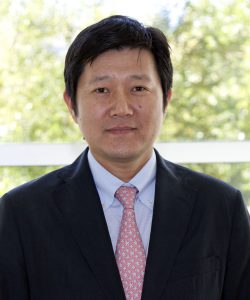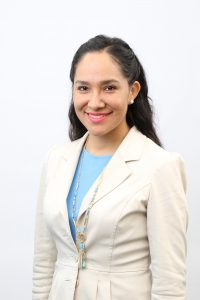Now that ENDO 2021 is one for the record books, here’s what a few attendees to the Endocrine Society’s first all-virtual annual conference had to say.
 Empowered at ENDO 2021
Empowered at ENDO 2021
In my position as a chief scribe at Stanford, and prior medical scribe in endocrinology, I attended ENDO 2021 to supplement my clinical experiences with additional educational sessions. ENDO 2021 is the first international conference I have attended and the first research conference I was accepted to as first author on a presentation (with mentorship and guidance by Dr. Marina Basina). It was great interacting with health professionals on the conference session forums, Twitter, and through my virtual presentation booth.
As a pre-health student, soon to be applying to medical school, it was inspiring to see the high-level discussions that take place at research conferences, as well as the collaborative sharing of knowledge.
I learned so much from many of the “bench to bedside” and Meet the Professor talks, and appreciated that the virtual format allowed me to re-watch interesting sessions. As a pre-health student, soon to be applying to medical school, it was inspiring to see the high-level discussions that take place at research conferences, as well as the collaborative sharing of knowledge. I’d like to also thank Dr. Deborah Sellmeyer for her many teachings in the clinic on metabolic bone disease, and the Stanford Medical Scribe Fellowship (COMET) for providing me a strong clinical foundation and sponsoring my registration to attend this conference. ENDO 2021 was an empowering conference! I look forward to attending ENDO 2022 and hope that it can be in person.
– Jacob Less, chief scribe of Specialty Clinics; research assistant, Division of Primary Care and Population Health; Division of Endocrinology, Gerontology, and Metabolism, Stanford University School of Medicine, Stanford, Calif.
 Engaging and Exhilarating
Engaging and Exhilarating
The virtual format of ENDO 2021 was well organized and easy to navigate. The clinical sessions were very lively, which helped me get more engaged in a way not possible before in a conventional meeting. I enjoyed Master Clinician session, “Thyroid Nodule: Whack It, Zap It, or Leave it Alone,’’ where experts from endocrinology, endocrine surgery, and radiology discussed approaches to thyroid nodules from their perspectives. The lively discussion was very engaging and the fact that we can type in questions in real time was exhilarating.
The virtual format of ENDO 2021 was well organized and easy to navigate. The clinical sessions were very lively, which helped me get more engaged in a way not possible before in a conventional meeting.
What I enjoyed the most was “Lipid Management in Patients with Endocrine Disorders: An Endocrine Society Clinical Practice Guideline.” It was helpful to learn directly from the guideline authors the evidence and thinking processes behind the guideline. You can pose your questions in real time and the moderator was excellent in picking pertinent questions. We do not always have the ultimate answers in medicine, but seeing a consensus achieved through rational discussions real time almost makes you feel like you’re participating in the process.
Product theaters were highly informative. For basic research, the wonderful thing about ENDO is that you will be exposed to wide array of research disciplines, from big data to GPCR, nuclear receptors, and adipose tissue biology.
For me, ENDO 2021 was an immense success and I hope that it will continue as a hybrid session of on-site and remote. On-site is needed, especially for international attendees as the time difference will be a burden in attending remote sessions. Nonetheless, I’d love to have the luxury of attending ENDO from the kitchen counter in coming years.
– Tae-Hwa Chun, MD, PhD, associate professor of internal medicine, MEND, Medical School, Biointerfaces Institute, University of Michigan, Ann Arbor, Mich.
 A Child-Friendly ENDO
A Child-Friendly ENDO
I have been attending the Endocrine Society Annual Meetings since I was a pediatric endocrinology fellow. It is truly amazing to have the opportunity to listen to the most updated scientific knowledge in endocrinology in only four days. This year was the first time I attended the ENDO virtually. Even though I miss seeing my pediatric endocrine buddies from all over the nation in person, the virtual platform allowed me to be with my children while attending my favorite lectures and research symposiums.
It is truly amazing to have the opportunity to listen to the most updated scientific knowledge in endocrinology in only four days.
My favorite sessions were “Addressing the impact of structural racism on Endocrinology and Health Care” in which my FLARE mentor, Dr. Joshua Joseph, was one of the speakers. This was such an important session, especially in the current times when awareness of the racial disparities in the U.S. is more important than ever. My second favorite session was about my current research area, “The Value of Early T1D Diagnosis and Beta-cell Preservation” presented by Dr. Henry Rodriguez. ENDO 2021 was an outstanding event this year!
-Lina Huerta-Saenz, MD, FAAP, assistant professor of pediatrics, Division of Pediatric Endocrinology and Diabetes, Department of Pediatrics, Penn State Health Children’s Hospital, Penn State College of Medicine, Hershey, Penn.
ENDO 2021 was jam packed so you might have missed out on a few things. Be sure to check out the highlights online where you can see:
- ENDO Faculty Interviews
- Expert Overviews
- Oral Session Summaries
- Poster Podcasts
- ENDO Leadership Interviews
And be sure to tune into the interview with incoming Endocrine Society president Carol Wysham, MD, who talks about her objectives for the next year as well as her personal highlights from ENDO 2021.

 Empowered at ENDO 2021
Empowered at ENDO 2021 Engaging and Exhilarating
Engaging and Exhilarating A Child-Friendly ENDO
A Child-Friendly ENDO 